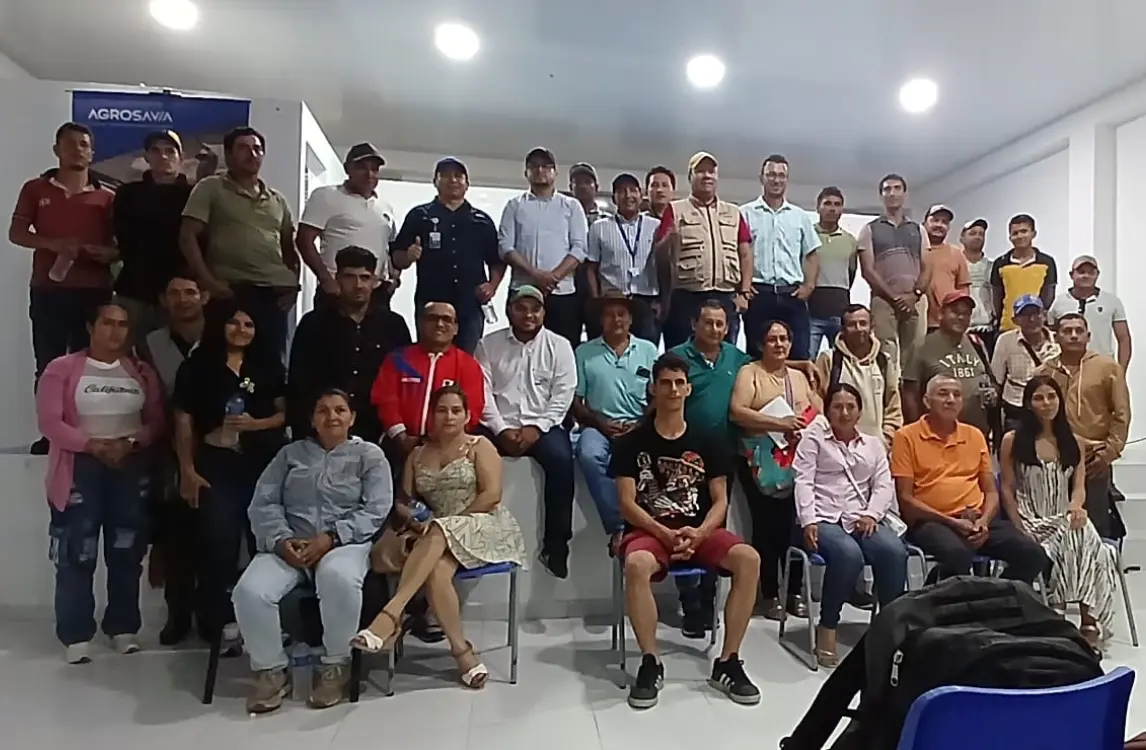Fortul, Arauca. June 10, 2025. Within the framework of the National Strategy to promote sustainable rural development and restore the social fabric in areas historically affected by the armed conflict, AGROSAVIA began structuring three important collaboration projects with Agencia de Renovación del Territorio (ART) [Territorial Renewal Agency], the Black, Afro-Colombian, Raizal, and Palenquera communities (NARP, for its Spanish acronym), and populations affected by the armed conflict in the municipalities of Saravena, Fortul, and Tame in the Department of Arauca.
These initiatives are being developed through an agreement with Fondo Colombia en Paz, with the support of Agencia de Renovación del Territorio. Their main objectives are to combat deforestation, promote environmental sustainability, and boost economic and social development for forest conservation in rural areas that are part of the Areas Most Affected by the Armed Conflict (ZOMAC, for its Spanish acronym) and the Development Programs with a Territorial Approach (PDET, for its Spanish acronym).
The projects are part of a national effort that covers different regions of the country, including Cauca, Nariño, Norte de Santander, Putumayo, Santander, and Sierra Nevada de Santa Marta. Specifically, in the case of Arauca, they are being implemented in the municipalities of Fortul, Tame, and Saravena.
The project entitled "Strengthening the Capacity of NARP Families through the Establishment of Living Fences" in the municipality of Fortul, Arauca Department," aims to increase the productivity and competitiveness of dual-purpose livestock farming systems on the lands of Afro-Colombian, Raizal, and Palenquera communities.
Through the renewal of pastures, the improvement of productive infrastructure, the integration of tree species into silvopastoral arrangements, and the acquisition of certain livestock, the project seeks to improve the productive and environmental conditions of livestock farming systems. The strategy also prioritizes the recognition of the rights of stakeholders and the promotion of associative partnerships as a long-term sustainability central axis. The project's goal is to intervene in 91 properties under inclusion, equity, and sustainability criteria.
Likewise, two other projects with a beekeeping approach will be implemented: 1) Comprehensive strengthening of the beekeeping chain in the Municipality of Saravena, Arauca Department; and 2) Comprehensive strengthening of the beekeeping chain in the municipalities of Tame and Fortul, Arauca Department. These initiatives aim to strengthen beekeeping production systems, recognizing the sector's high potential as a viable, sustainable, and environmentally friendly affordable alternative for rural communities. The goal for each beekeeping project is to benefit 60 producers.
Work with beekeeper associations and small producers will include the exchange of technical knowledge, training in appropriate technologies for managing the production system, and strategies for valuing beehive products. Likewise, efforts will be made to highlight and certify the distinctive attributes of honey and other derivatives based on their safety, origin, and composition, opening up possibilities for larger-scale marketing.
The Department of Arauca is currently a model for the eradication and substitution of illicit crops. These projects aim to ensure that communities benefit from the actions undertaken to foster an equitable, productive, and competitive coexistence of the productive systems intervened in the municipalities of Tame, Fortul, and Saravena in the Department of Arauca.
- More information here:
- Darlin Conrado Mosquera
- Communications, Identity and Corporate Relations Professional
- Research Center La Libertad
- Communications, Identity and Corporate Relations Advisory Office
- dconrado@agrosavia.co
- AGROSAVIA





